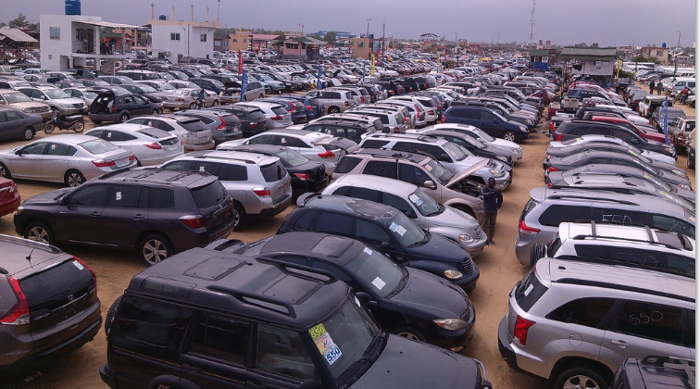The importation of cars into Nigeria has declined significantly as rising inflation, foreign exchange volatility, and high import duties continue to put pressure on vehicle prices. The combination of economic challenges has made it increasingly difficult for individuals and businesses to afford imported automobiles, leading to a sharp drop in demand.
Car dealers and importers report that the high cost of forex, particularly the dollar, has made it more expensive to bring vehicles into the country. With the naira’s depreciation in both the official and parallel markets, importers are forced to pay more for foreign exchange, driving up the cost of cars and making them unaffordable for many Nigerians. Additionally, stringent government policies on vehicle importation, including high tariffs and levies, have further discouraged imports.
Inflation, which has been on a steady rise, has also played a key role in reducing car imports. With the cost of goods and services soaring, many Nigerians are prioritizing essential needs over luxury purchases like vehicles. This has led to a slowdown in car sales, with dealerships struggling to move inventory as consumer purchasing power continues to weaken. The situation has also affected the used car market, where prices have surged due to limited supply and high import costs.

Industry stakeholders have expressed concerns over the long-term impact of declining vehicle imports on the transport sector. Many small businesses that rely on commercial vehicles for logistics and ride-hailing services are finding it increasingly difficult to expand or replace aging fleets. The transportation industry, which plays a critical role in Nigeria’s economy, is feeling the strain as the cost of acquiring new or fairly used vehicles becomes prohibitive.
Some car dealers have begun exploring alternatives, such as sourcing vehicles from neighboring West African countries or partnering with local assemblers to reduce dependency on imports. However, challenges such as limited production capacity and high manufacturing costs have made local vehicle assembly an expensive option.
Experts suggest that the government could ease the burden on car importers by reviewing import policies, stabilizing the forex market, and promoting vehicle financing options to make cars more accessible to the average Nigerian. Without policy interventions, the decline in car imports is expected to persist, further straining the auto industry and limiting mobility options for many Nigerians.
Support InfoStride News' Credible Journalism: Only credible journalism can guarantee a fair, accountable and transparent society, including democracy and government. It involves a lot of efforts and money. We need your support. Click here to Donate
